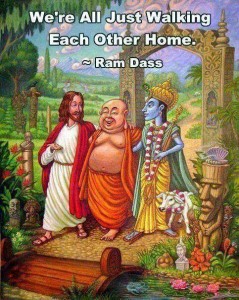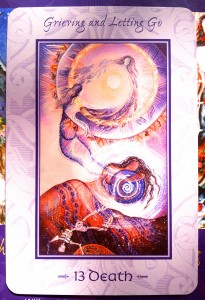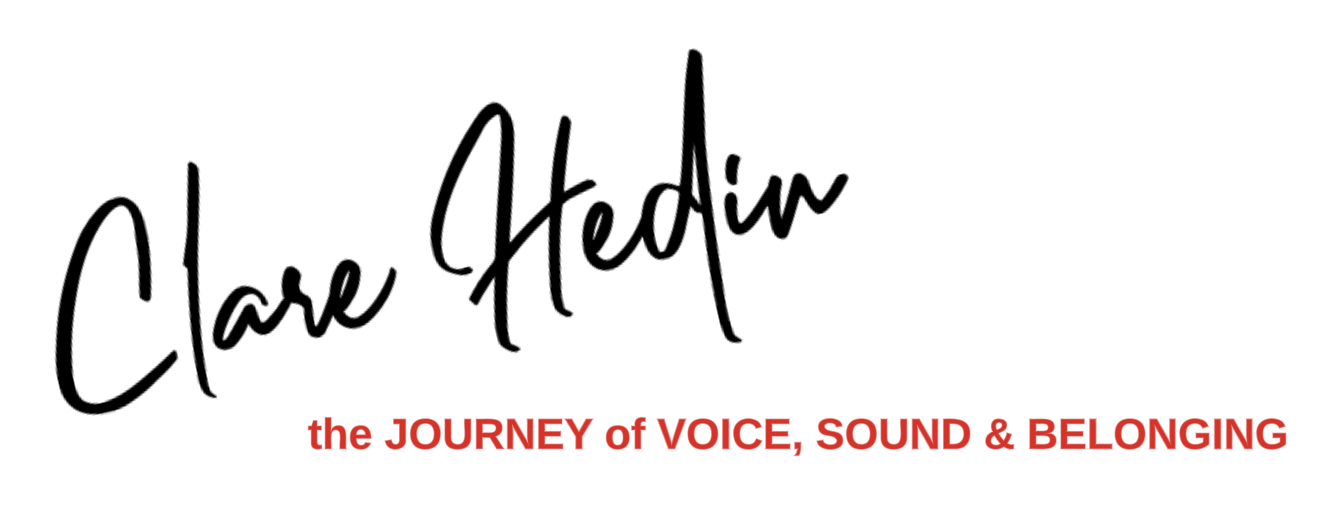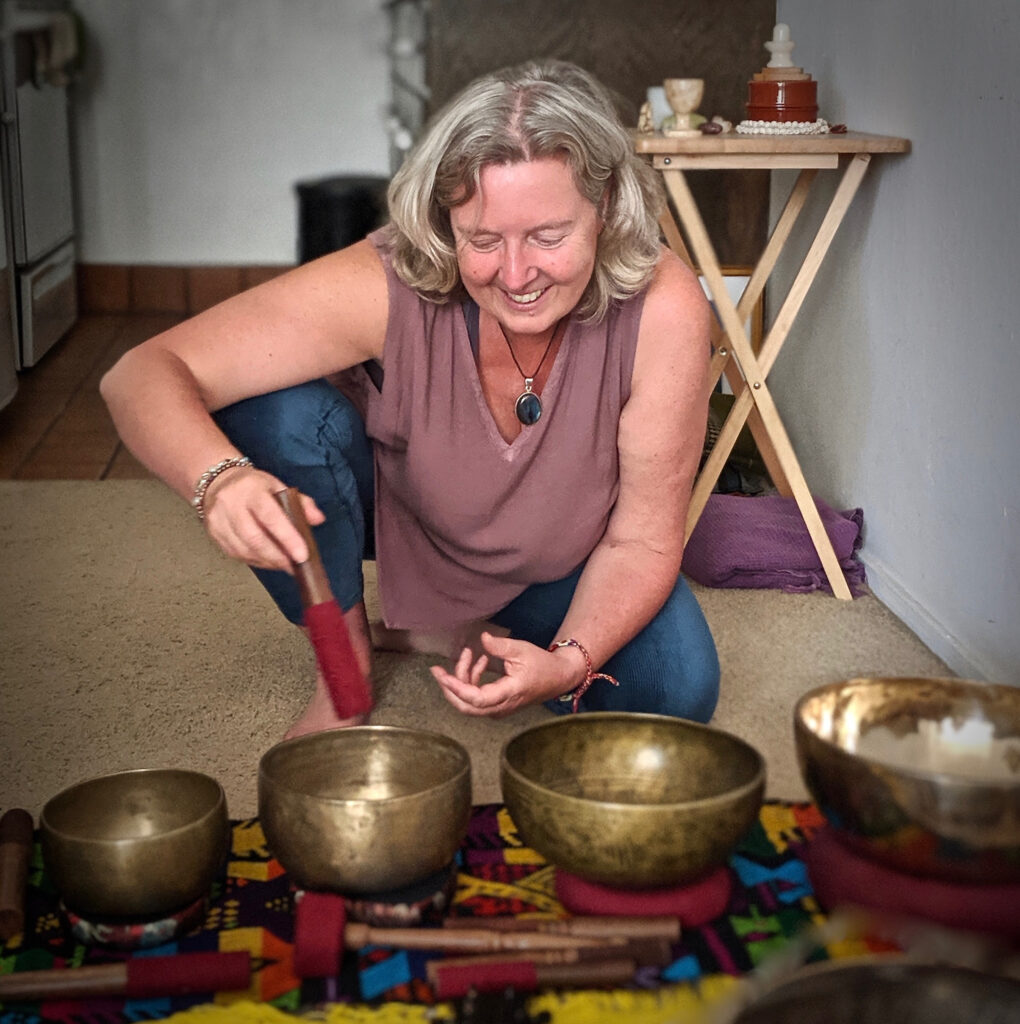Was Jesus really telling us something else?
Consciousness On The Road… Inspiration, Aspiration or Guilt!?
 The other day I found myself thinking about how the way we tell stories impacts not just their meaning, but our actual lives.
The other day I found myself thinking about how the way we tell stories impacts not just their meaning, but our actual lives.
One of the oldest stories in the book, so to speak, is of course, that of Christianity – a religion I grew up in and that I managed to let push me far away from Christ as a principle and as a man. It wasn’t just a story to me, it was a major guilt trip of which I was, apparently, the perpetrator.
Contemplating here a very brief overview of the narrated events of his life (not including the Gnostic Texts), I found myself questioning the intended narrative of Jesus’ actual life – in particular the part where I’ve been repeatedly told he died for my sins (as if I’d been doing – or being – something awful without knowing it). I was always a little uncomfortable with that, not surprisingly – it’s quite a statement! A bit heavy, really. So, here I was with an inkling that there might be a more inspiring way to look at this man’s life and, in particular, the meaning of his death. It relates to my life. His is a big story, so when we look at some of the particulars, what do they really mean?
Whilst pondering this, I came across a reframe that I rather liked, so I thought I’d share it with you. Before I do I should mention that where I found (and find) my sense of spiritual connection has always been outdoors, in Nature. For me that is easy. But when I was asked to look for it in the Bible it just wasn’t really there for me. Now that I have had more time to think about this as an adult, I’m aware that I’m probably a bit Pagan and a bit Buddhist with some Christian Mysticism buried deep in my bones.
So here goes… Jesus’ life.
 My original framing: Although I wasn’t involved in his life and couldn’t have done anything about his demise, when I used to hear ‘he died for your sins’ I would feel pain, confusion and guilt (shame), right in my body. Help! Had he asked me, I would have said ‘Oh G** (forgive the irony) no! Not on my account please; you take care of you!’ I didn’t find the guilt from the above statement inspiring, comfortable or particularly helpful with regards to what message I could take from this, as it was.
My original framing: Although I wasn’t involved in his life and couldn’t have done anything about his demise, when I used to hear ‘he died for your sins’ I would feel pain, confusion and guilt (shame), right in my body. Help! Had he asked me, I would have said ‘Oh G** (forgive the irony) no! Not on my account please; you take care of you!’ I didn’t find the guilt from the above statement inspiring, comfortable or particularly helpful with regards to what message I could take from this, as it was.
Then I wondered; what if my (or my childhood church’s, or my school’s) interpretation was, well… wrong? What if it wasn’t a label about what a shameless sinner I was meant to be? As I contemplated the symbolism of his life dedicated to inspiring social and paradigmatic change, his pleading at being forsaken, his death, three days in the cave, his resurrection and encounter with Mary Magdalene, I found a different story that has the capacity to transmute this guilt into awe… in 6 timeless teachings.
1) What if his death was him asking us (then, and now) to learn how to move on? What if he was saying – remember table-turning outside temples, haranguing people for being irreverent – ‘look chaps, I am going to show you how easily we can begin again, right now. Here is full commitment to a new idea, a new paradigm. And, by the way, notice, in a few days, that there is no death so, no need for fear. Just step off the cliff into not-knowingness and I’ll (your answers/destiny will) be there. You can’t fail. Have faith’.
2) What if his death was a message for us to truly see ourselves in our potential and to start working together as a community, putting aside petty differences, judgments and squabbles to build something powerful, compassionate and sustainable? (as so many are now aspiring to).
3) What if feeling guilty about his death is simply another ‘sin’ (i.e. ‘missing the mark’ of understanding this underlying life affirming message)? Perhaps the idea of him dying ‘for our sins’ was really a way of showing us that there is nothing further to actually forgive or hold on to; that the maya of life is transparent to those with eyes (“those who have eyes shall see”) and that we are all, in fact, free ‘now’… and that we sacrifice all for our suffering.
4) ‘Father, why hast thou forsaken me?’ What if that symbolizes his ego talking to its maker (him). And what if Jesus didn’t die for my sins – but for his own? Oh, my. A step towards self ascension by example. Maybe his ‘rise to heaven’ illustrates becoming enlightened, dis-identified with the maya of suffering. If I forgive myself right now, completely, there is nothing left to correct, or defend. My ego can die.
5) In the cave there is a sense of that time when our egos have been deconstructed by life circumstances, leaving us with nothing to identify with from before. We have to make friends with this new space of personal emptiness. The ego has died – now can we live?
Here’s an excerpt from some writing I did when I felt that happen to me;
“I have just come from interviewing Scott – I feel like my mind has been blown open again and I feel tears of relief, fear and hope. My chest is frozen and my breathing has stopped. I feel like a waterfall that has been stopped in time and all the water, the droplets, the places they were destined to fall, have been prevented, questioned, re-identified. ‘Who am I?’ has become a meaningless question. ‘What spiritual practice to follow?’ has likewise no body on which to drape its falling self. I feel lost and yet the I that feels lost, doesn’t have a place of existence. There is no I… It is a place of silent activity, noisy stillness. Nature is talking in its non-existent way to my non-existent self in the non-existent cave. And there is beauty in the terror…”
6) Encountering Mary Magdalene; synthesizing his masculine and feminine… his alchemical ascension. Moving beyond the confines of his dominant masculine into his divine masculine, witnessed and supported by his awakening feminine. This union is his enlightenment, his ascension… and maybe the point is that it can be ours also.
I wonder how our world would breathe differently if we looked through those eyes of compassionate intelligence onto the earth of our combined lives, capable of such alchemical ascension?
 My emerging framing: Boy do we make mistakes! And even as we learn we are responsible for our choices. We can choose suffering or we can choose liberty. We can choose to be kind to ourselves, by letting go of our egos and our need for revenge or our need to be right. Free will. Hope. Life is messy and raw but it is also beautiful. And we can choose a beautiful, radical, whole, genuine, self-and-truth-empowered life, over a vague half life (death) of conformity and sleep – right now. In other words, we don’t just serve God, we are God… and that is a compassionate position.
My emerging framing: Boy do we make mistakes! And even as we learn we are responsible for our choices. We can choose suffering or we can choose liberty. We can choose to be kind to ourselves, by letting go of our egos and our need for revenge or our need to be right. Free will. Hope. Life is messy and raw but it is also beautiful. And we can choose a beautiful, radical, whole, genuine, self-and-truth-empowered life, over a vague half life (death) of conformity and sleep – right now. In other words, we don’t just serve God, we are God… and that is a compassionate position.
I think for me the reason a reframe is helpful is because I am making peace with the wayward direction our spiritual sensibilities have gone over the years, when combined with certain interpretations, or modes, of worship (or at least when those modes become politicised by the ego that I’m positing Jesus was showing us), and how that’s ultimately affected our relationship to Nature. I think what I have trouble with really boils down to our interpretation and use of this idea of ‘sin’ and the appropriation and propagation of the word God as a purely Christian ideal instead of Nature, or Life as a Living ideal. And, as I say, because this view is so pervasive in the mainstream, I believe it has absolutely affected how we treat Nature (I recommend you read Kay Griffith’s “Wild” for more substantive info there). Life is a Graceful, Messy and Real process… RAW LIFE! So I think it’s absolutely worth questioning meaning from shared texts and language, in search of our freedom; our vastness.
Since ‘sin’ is not, in my experience, an empowering word and God has become a threatening word we have to go elsewhere for our connection; we have to go into our imaginations – and reinterpret the stories available to us ourselves! Judgmental use of terminology alienates and I think that’s been my biggest concern with, for instance, Old Testament Christianity, as it seems to attack those who most need help; the vulnerable, and subsequently removes the potential for spiritual intimacy – when it is most needed. Maybe I’m just being too sensitive (I’ve heard that before!) but I don’t think my question of behaviour arises in a vacuum. Sin and mistake have lost their synonimity and have somehow acquired connotations of evil rather than being made socially available as the places of personal potential that they actually are, so I don’t use the word sin, but I do practice the word mistake, frequently! My freedom has come from becoming freer to admit, literally ‘let in’, my whole messy, elegant self. This has called for an enormous swim in humility with the help of compassionate listening… nothing less than a return to intimacy… raw intimacy.
As a teacher and student I am often encouraged to come to the table with a glass ‘ready for filling’ – as scientist David Bohm would say, allowing the implicate to become explicate, in the grace of time. That kind of knowledge acquisition can lead to wisdom – which our planet or we, AS planet, need to really imbibe. Otherwise, our attachment to knowledge can create bigotry and factions that are not able to ascend, to become enlightened, as per Jesus’ example (I still cringe when I refer to Jesus, even though I consider him a political and social activist that I know I would have enjoyed and admired – perhaps even loved. However, the old walls hold such strong memories of the idea of Jesus, once taken over by big church as a sort of political campaign, that it’s hard for me to refer to him without feeling I am invoking that entire system – thanks for that, guys!). However, luckily, writing is, for me, a process that helps alchemise the old, exhuming the ghosts of perception up, into the clear night sky, and down into the cool, damp earth.
I recall Dr. Phil’s famous saying ‘do you want to be right or do you want to be happy?’ Well, if being both is not an option (!) then I choose happiness – not the superficial kind but the integrated sense of self on a path of deep connection and belonging to Nature, to Spirit, to Life, regardless of how other people might appropriate my symbols… how about you? How are you doing in finding your own right way to connect? I’d really love to hear.
Thank you for reading. Please join in the conversation below – it’s great when you share:)
Peace,
Clare
p.s. The two card images come from The Tarot Of Transformation by Willow Arlenea and Jasmin Lee Cori. A beautiful deck.
Who is Clare?
 Clare Hedin is a Career and Voice Presence coach, singer/songwriter, comedic performer, healer and teacher of Creativity, Consciousness & Innovation @ San Francisco State University. For more info please visit https://clarehedin.com. Also, join Clare’s Club ‘Living In Your Center’ for a free introductory week, to begin to discover more about your own path of truth, mess and justice! She can be contacted at clare@clarehedin.com or via her website for more ways to connect and to develop your own process of creativity, personal growth and planetary consciousness. And you can email her privately and to arrange a session@ clare@clarehedin.com
Clare Hedin is a Career and Voice Presence coach, singer/songwriter, comedic performer, healer and teacher of Creativity, Consciousness & Innovation @ San Francisco State University. For more info please visit https://clarehedin.com. Also, join Clare’s Club ‘Living In Your Center’ for a free introductory week, to begin to discover more about your own path of truth, mess and justice! She can be contacted at clare@clarehedin.com or via her website for more ways to connect and to develop your own process of creativity, personal growth and planetary consciousness. And you can email her privately and to arrange a session@ clare@clarehedin.com


